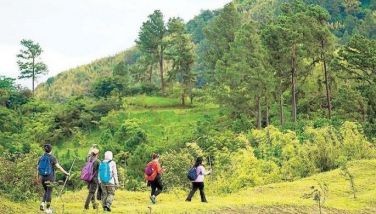ADB sees growing potential of alternative accommodations
MANILA, Philippines — Southeast Asian countries need to legally define alternative accommodations and simplify online registration systems and licensing requirements to strengthen the regulation of the growing sector and maximize its benefits to the economy, according to the Asian Development Bank (ADB).
These recommendations were presented in the multilateral lender’s paper that looked into alternative accommodations or non-hotel rooms often associated with commercial online platforms such as Airbnb, Booking.com, or other similar online marketplaces in Southeast Asian countries like the Philippines, Cambodia, Indonesia, Lao People’s Democratic Republic, Thailand and Vietnam.
“Legally defining alternative accommodations and implementing online registration systems would lessen regulatory uncertainty among alternative accommodations property owners and help destinations better manage this rapidly growing economic activity,” the ADB said.
While alternative accommodations which include homestays, guesthouses, and apartment rentals make up an estimated 45 to 55 percent of total room supply in the six Southeast Asian countries, the ADB said regulation is still limited.
In the Philippines, the ADB said there are definitions for some, but not all non-hotel accommodation types, with the term covering homestays, apartment hotels, home sharing, and other similar establishments.
Citing data from AirDNA, ADB’s paper showed there were 63,900 alternative accommodation listings booked with total revenue amounting to $221 million in the Philippines last year.
Alternative accommodations bring benefits, including employment, reduced economic leakage as accommodation revenue tends to be reinvested locally, as well as increased visitor arrivals and diversified source markets.
However, when not properly managed and regulated, the ADB said alternative accommodations can create challenges, including loss of government revenue through foregone taxes and licensing fees, negative hotel industry health, higher residential housing cost, and strain on local infrastructure, such as water supply, waste management systems, and transport.
The ADB said clearly defining alternative accommodations and having simple online registration systems in place would foster the private sector’s ability and willingness to register their properties.
“Registration provides the government with the basic information needed to manage accommodation supply and understand supporting public infrastructure and service needs,” the ADB said.
It also said building government enforcement capacity, streamlining the number of regulatory agencies, and forging partnerships between the government and industry would be important to boost regulatory compliance.
In addition, it said increased access to quality data will be necessary to formulate quality regulatory solutions.
“To better harness the potential benefits and minimize negative impacts of alternative accommodations, destinations must have appropriate and effective regulations in place to maintain safety and quality standards, ensure fair competition, and strengthen destination governance in alignment with local socioeconomic development and environmental management objectives,” the ADB said.
- Latest
- Trending





























